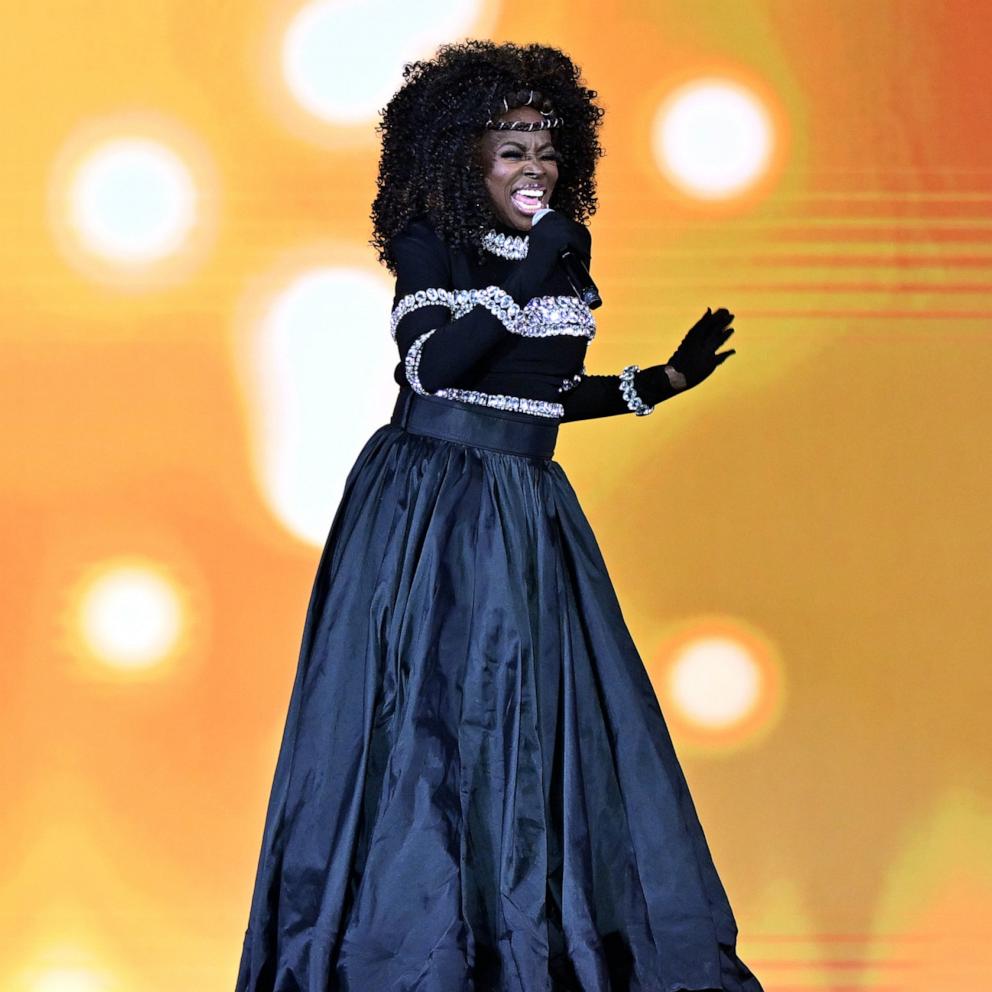Candidates shout over each other for relevance in second GOP debate: ANALYSIS
In a broad field overshadowed by a runaway front-runner, too many choices can mean too few. And too many voices can make for a mess.
Those facts contributed to a whole lot of noise -- alongside a few cringey jokes -- at the second Republican primary debate of the 2024 cycle, on Wednesday night in California. What it means for the state of the race remains to be seen: Donald Trump's challengers say it's still wide open ... and his supporters say it's already pretty much a done deal.
That urgency was reflected in candidates who often disregarded the debate rules and talked over each other to grab speaking time, sometimes shifting strategies since the first debate, last month. They attacked President Joe Biden and also former President Trump -- the absent leader in the polls -- but often less than they attacked each other, on spending records, business conduct, abortion rights and more.
"I can't even understand what is going on," Florida Gov. Ron DeSantis, standing center stage as the top-polling contender who chose to attend the debate, said at one point amid rampant crosstalk.
Businessman and commentator Vivek Ramaswamy occasionally tried a new tack after his searing attacks at the first debate: "These are good people on this stage," he said. South Carolina Sen. Tim Scott -- who said after that first debate that Americans didn't want a "food fight" -- called Ramaswamy out for the tonal shift, with a swipe over business ties to the "Chinese Communist Party" and entities that gave money to the business interests of Biden's son Hunter.
Former Vice President Mike Pence attacked both DeSantis, over his criminal justice and spending record in Florida, and Ramaswamy for not committing to support Ukraine against Russia. (Pence also responded to an unusual Chris Christie jab at Biden, over Biden's loyalty to teachers in light of first lady Jill Biden's job, by citing his own wife's career: "I have been sleeping with a teacher for 38 years -- full disclosure." Karen Pence has long taught elementary school.)
Scott took on DeSantis over education policy, and former U.N. Ambassador Nikki Haley blasted him over energy policy. Haley, whose tangles with Ramaswamy kept the first debate lively, laid into him for ties to China and his joining of TikTok, the hugely popular social media app owned by a Chinese company.
"Every time I hear you, I feel a little bit dumber for what you say," Haley said. "We can't trust you."

Scott at one point turned on Haley -- a fellow South Carolinian who first appointed him to his Senate seat: "Talk about someone who has never seen a federal dollar she didn't like."
"Bring it, Tim," she shot back. "Do your homework."
There was broad agreement that Biden is offering the wrong solutions on economics, immigration, health care and far more. Trump came up with some frequency, though primarily to note his absence.
"Donald Trump is missing in action tonight. He owes it to you to defend his record," DeSantis said.
"Donald Trump hides behind the walls of his golf clubs and won't show up here to answer questions like all the rest of us," former New Jersey Gov. Christie said.
"You're not here tonight because you're afraid of being on this stage and defending your record," Christie said a bit later, addressing the former president directly. (He wound up to a line saying that Trump will soon be known as "Donald Duck" -- given his habit of "ducking" things.)
The candidates passed on an opportunity at the end of the debate to vote a rival "off the island," with the exception of Christie. But he was extra lonely on the stage, with the other main Trump critic who was at the first debate, former Arkansas Gov. Asa Hutchinson, failing to qualify for the second.

Broadly, agreeing that Trump should be at the debate is not the same as presenting an alternative to the base's overwhelming favorite. The candidates did not mention Trump's false election claims or the four sets of indictments that will leave Trump in courtrooms for months of the coming campaign -- as Trump denies all wrongdoing -- with the real possibility that he could be convicted before next November.
In his absence, Trump took some incoming on his past abortion comments, when he suggested conservative messaging on abortion restrictions was to blame for disappointing results in 2022 elections, as well as his spending record and foreign policy, particularly when it comes to Russia and Ukraine.
He took no criticism, though, on his actions around Jan. 6 or alleged actions that leave him in legal peril even as he rides high in polls.
Trump spent his night in Michigan, where he largely ignored his rivals except to mock their vice-presidential prospects and to attack Biden over the state of the auto industry. It was a peek forward to the general election next year, made possible in part by Trump's 40-or-so-point lead over all of his rivals.
The gorgeous and historic setting at the Ronald Reagan Presidential Library, under the shadow of Air Force One and high above the picaresque Santa Susana Mountains, provided poignant reminders of how deeply the party has changed since Reagan left the presidency in 1989.

Reagan came up repeatedly, with candidates eager to praise the legacy of a onetime insurgent figure who grew into a conservative icon. Ramaswamy even reminded his rivals of the former president's famous so-called "11th commandment": "Though shalt not speak ill of any fellow Republican."
Trump famously jettisoned that guidance in shredding his rivals in his quest for the GOP nomination and the presidency in 2015 and 2016. It did not hold Wednesday night, but neither did it unleash much in the way of attacks on Trump.
If Republican primary voters care deeply about issues -- abortion, the border, labor relations, Ukraine -- they have choices to make based on what the candidates on stage Wednesday night had to stay.
If voters care about life stories -- inspiring personal journeys, deep experience inside and outside government -- those choices are there, too.
But the race for now remains mostly about Trump, and it will stay that way until or unless he surrenders his wide lead with conservatives. So far, his rivals have not agreed on a way to speak ill of him or a strategy to peel off his supporters.



